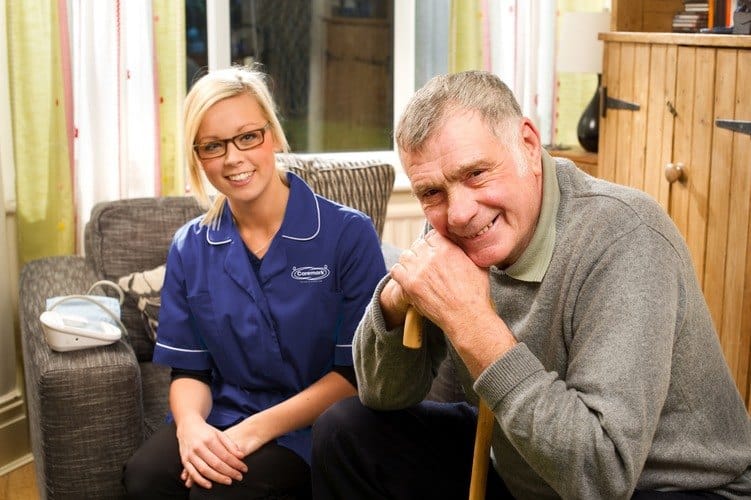Reducing Stress During COVID-19: Helpful Habits

Talk to a friend, family member or care assistant, and they’ll likely admit that stress is a part of their daily lives. In fact, more than one in three people worldwide report experiencing a lot of worry (39%) or stress (35%) during the day, according to Gallup’s 2019 Global Emotions Report. Especially for older adults, stress has the potential to impact long-term physical health, as well as mental stability. While it’s impossible to completely eliminate the stress we feel, there are proactive steps we can take today to help alleviate some of our worries.
“While it is perfectly natural to feel anxious during changing and uncertain times, it’s important that we take a moment to reflect on our stress levels and think about healthy ways we can cope.”
We all have an opportunity to help move our mindset from a place of fear to a place of hope. Coping with stress and anxieties can be challenging as you grow older, but doing so can offer impressive benefits to long-term health, even in small ways. The numerous benefits include improved mood, more restful sleep, lowered blood pressure and a boosted immune system, among other things.
To better identify and reduce stress in our daily lives, Hogan recommends practising these simple habits:
Practice mindfulness. Actively focusing on the good and understanding the triggers that set you off is key to identifying and mitigating stress. When feeling overwhelmed, take a moment to simply sit still and breathe deeply. Try to quiet negative thoughts by making a daily list of what’s good in your life and why you’re grateful.
Find happiness through health. A healthy diet and exercise can go a long way to improving mood and maintaining positivity in your life. When possible, dedicate 30 minutes a day to activities like stretching, walking around the neighbourhood or relaxation yoga at home. Can’t find 30 minutes a day to exercise? Break it up into three 10-minute chunks. With today’s technology, you also can find activities to get you moving online or even “On Demand” workouts through your TV provider. Eating well can also impact well-being.
Build a support team. Surrounding yourself with positive friends and family is helpful when trying to stay upbeat yourself. When physical visits with loved ones aren’t possible, consider using video chat platforms like Skype, Zoom or the senior-friendly GrandPad, picking up the phone, or sending an old-fashioned letter or postcard. To forge new relationships in person, consider joining a club for older adults, having some of your meals with others or volunteering in your community.
Limit your news intake. While it is important to stay current, too much negative news can contribute to high stress levels. Choose a reputable source and commit to checking it once in the morning and afternoon, rather than grazing throughout the day. Consider keeping your mind engaged in other activities, such as reading, writing or a favorite hobby.
Laugh daily. A quick chuckle not only makes you feel good, its positive effects stay with you long after the laughter subsides. Research shows that laughter lowers stress hormones, relaxes muscles, improves mood and eases anxiety. Find activities that encourage laughter throughout the day, like reading a novel, catching up with a loved one or watching a funny video.
Whether it’s a quick stroll around the block or giving your grandchildren a call, start small by adding one or two of these tips to your regular routine. Once you feel ready, add more. After all, the best game plan to reduce stress is one that works with your preferences and lifestyle. For more tips and activities to relieve stress, visit https://www.care assistantstress.com/senior-activities/.